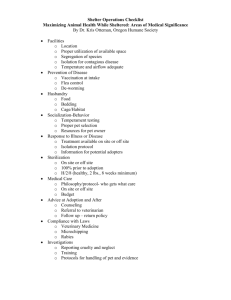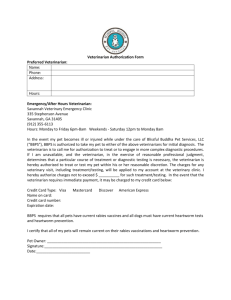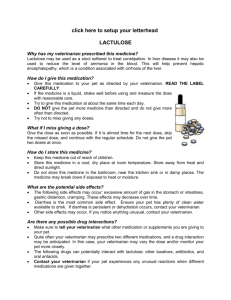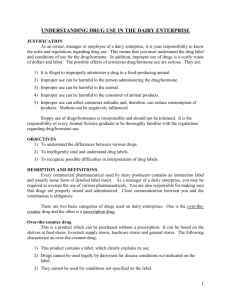Laboratory Testing
advertisement
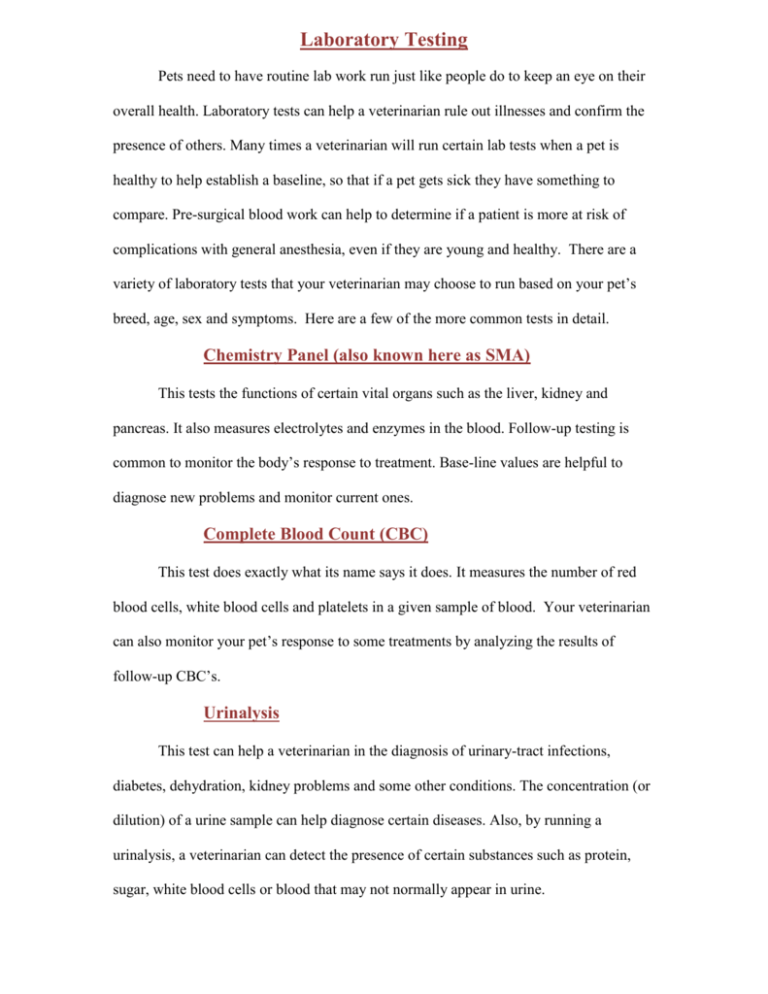
Laboratory Testing Pets need to have routine lab work run just like people do to keep an eye on their overall health. Laboratory tests can help a veterinarian rule out illnesses and confirm the presence of others. Many times a veterinarian will run certain lab tests when a pet is healthy to help establish a baseline, so that if a pet gets sick they have something to compare. Pre-surgical blood work can help to determine if a patient is more at risk of complications with general anesthesia, even if they are young and healthy. There are a variety of laboratory tests that your veterinarian may choose to run based on your pet’s breed, age, sex and symptoms. Here are a few of the more common tests in detail. Chemistry Panel (also known here as SMA) This tests the functions of certain vital organs such as the liver, kidney and pancreas. It also measures electrolytes and enzymes in the blood. Follow-up testing is common to monitor the body’s response to treatment. Base-line values are helpful to diagnose new problems and monitor current ones. Complete Blood Count (CBC) This test does exactly what its name says it does. It measures the number of red blood cells, white blood cells and platelets in a given sample of blood. Your veterinarian can also monitor your pet’s response to some treatments by analyzing the results of follow-up CBC’s. Urinalysis This test can help a veterinarian in the diagnosis of urinary-tract infections, diabetes, dehydration, kidney problems and some other conditions. The concentration (or dilution) of a urine sample can help diagnose certain diseases. Also, by running a urinalysis, a veterinarian can detect the presence of certain substances such as protein, sugar, white blood cells or blood that may not normally appear in urine.





